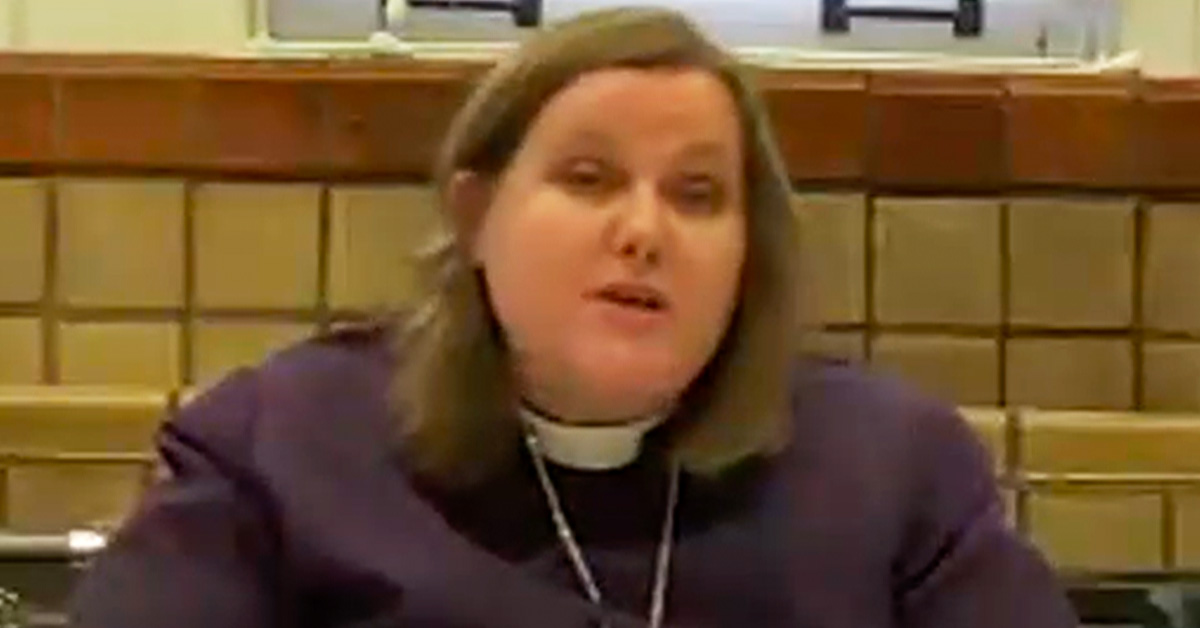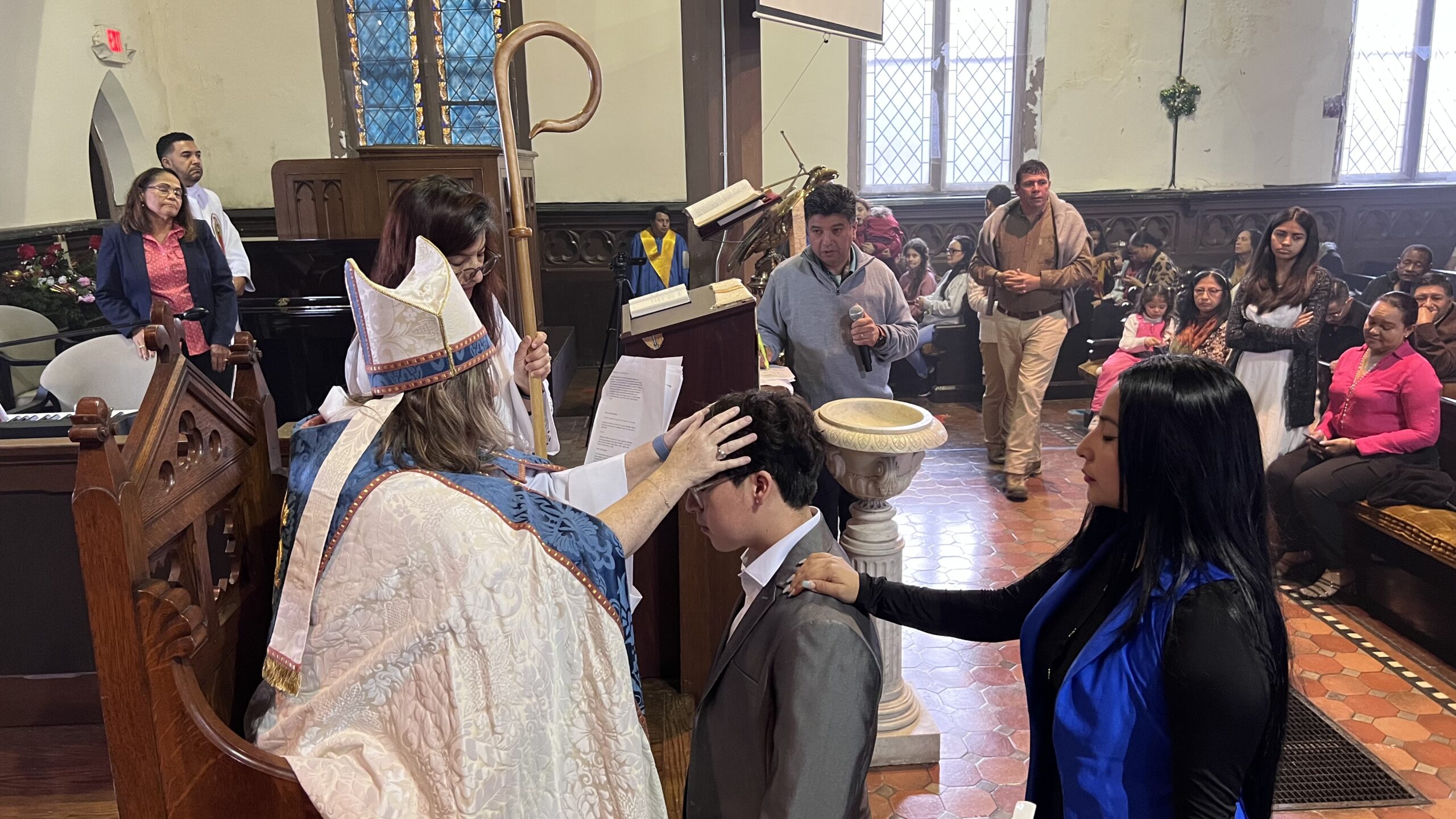Sermon—Bishop’s Address—Diocese of New Jersey
Special Budget Convention—December 9, 2023
Morning Prayer, Year 2, Dec. 9 2023 Amos 5:18-27 Matt. 22:15-22
Jesus said, “give therefore to the emperor the things that are the emperor’s and to God the things that are God’s.” In the name of the Father, and of the Son, and of the Holy Spirit, Amen.
Good morning, everyone. Thank you for participating in today’s Special Meeting of the Convention for the purpose of reviewing and adopting a preliminary budget for 2024. Whether you are a member of the clergy, a lay deputy, or an observer, I am grateful for your presence and appreciate your time and engagement with this budget process. Gathering in person does not make sense for a special convention where the only business to be conducted is the budget process, but if we were, then I would be delivering an address as part of our worship, so I am pleased to do so as part of today’s service of Morning Prayer. We are using the readings assigned for today, and both lessons speak to where we are.
Our first reading is from the prophet Amos and includes that wonderful line “let justice roll down like waters and righteousness like an ever-flowing stream.” It comes in the context of a prophetic condemnation, a charge to the people of Israel who have not done what God has asked of them, and it is a powerful reminder for us of the call to live lives of righteousness and faith. For a special convention focused on our diocesan budget, it is perhaps especially important as a reminder that our work with the financial resources entrusted to us is not about us—it is about God, and we are called not to be comfortable, but faithful, to do God’s work, with justice, compassion, and mercy.
For today’s second reading, we have the story from Matthew of the emperor’s coin, which is so very appropriate for a day when we focus on our diocesan budget. You might remember having heard this story interpreted as a clever trap for the Pharisees who were somehow not supposed to have Roman coins. When Jesus asks for a coin and they produce one with the emperor’s head on it, they are dealing in corrupt Roman money, covered in graven images (forbidden according to the ten commandments) and a sign that they are somehow complicit in the Roman occupation of ancient Israel.
The traditional interpretation is that in telling people to give to God the things that are God’s and to the emperor the things that are the emperor’s, Jesus is telling people that not only is it appropriate to pay taxes—it is expected. As followers of Jesus Christ, we are dual citizens, both of the kingdom of God and of the secular world in which we live. So, taxes and support for the civic order are all part of good Christian citizenship. We give to God the parts of our lives that are God’s, and to the emperor, the parts that belong to the world.
I have sometimes heard entire sermons on this passage that focus on the hypocrisy of the Pharisees. In asking for and receiving a Roman coin from supposedly faithful Jewish leaders, Jesus showed that they were collaborators with oppression, handling Roman coins, and engaging in business and commerce with foreign forces who harmed and profited off the children of Israel.
Except the archaeological record doesn’t support this. There are thousands of ancient Roman coins buried beneath the streets of Jerusalem because it was the currency of the day, and they were found in every home. You could use them to pay Roman taxes. You could also use them to buy a loaf of bread, go to a show, or pay someone to fix your roof. Roman coins were the everyday currency of the land, while those perfect Jewish coins had only one purpose, and that was to pay the temple tax. The Pharisees weren’t hypocrites because they used Roman money—they were just like everybody else.
The real challenge of this passage is not who issued the coin, but its value. The denarius that the Pharisees brought out when Jesus asked for a coin was a full day’s wages for a laborer. In a society where most people were poor and wealth was held by only a few, this is an astonishing display of privilege. To be able to casually hand over a denarius in first-century Jerusalem, well, those who could do so were not walking with the God who calls for justice to “roll down like waters and righteousness like an ever-flowing stream.”
We are called to be faithful stewards of what has been entrusted to us. Not to hoard for personal gain, or to spend foolishly, but to care faithfully for what we have, to support our congregations and communities and people, and to encourage others to do the same.
Today, the budget we present represents our best efforts to be faithful with what God has entrusted for us. We will share in more detail as it is presented, but the quick summary is that it represents a decrease in spending of over $600,000 from our current 2023 budget, while we also anticipate a decrease in income. It is the result of tremendous, faithful, and hard work by the finance and budget committee and our staff, and I am grateful.
As a diocese, New Jersey has been blessed with resources of all kinds—people, property, and financial reserves. The resources are a gift and a sacred trust, and they are not unlimited. We have calculated that over the past decade, the Diocese of New Jersey has spent a little over ten million dollars out of our reserves, endowments, and trust funds. Not only is that money no longer producing income for us—income we need—but it is also clear that this rate of spending is not sustainable.
The changes we are proposing for 2024 fall into four broad categories. One, overall decreases in small amounts to more accurately reflect current levels of spending and need. We have several places in our budget where we have continued to allocate funds at pre-pandemic levels, including for ministries that are no longer using funds in the same way. We also have some budget lines where the requests for 2024 were reduced, and we are grateful for these measures—each small decrease adds up.
Two, we’ve decreased our overall staff funding, while expanding positions that will translate into more support for congregations, clergy, and lay leaders across the diocese. I’ll say more about this during the budget presentation, but it represents a savings of over fifty thousand dollars.
Three, I asked the Board of Missions to decrease the overall level of spending, to save about $200,000 over this coming year. This was hard and holy work, and I am grateful. The decrease reflects decisions not to fund several large requests where the numbers did not make sense, for example one affiliated congregation with an average Sunday attendance of 7 and 12, less than 20 people, that had been receiving $111,000. I’m glad to be able to tell you that in both instances where funding changes would have had a negative impact on clergy employment, we were able to arrange for full-time employment at the same level to be offered to those affected.
The fourth change is that we are asking the national church to accept a reduced assessment from us this year and for several years to come. This is relief that is offered when there is significant financial need, and I believe our current overspending of over 1.3 million dollars certainly qualifies us for this support.
We will explain all this and more in the budget presentation that will follow shortly.
When I began my work as Bishop of New Jersey, I initially thought that we would be passing a placeholder budget, with work ahead of us to review and respond to our financial situation, likely in 2025 and beyond. Instead, I have come to understand that our situation requires an immediate response. This current budget represents our best efforts to be faithful to God, and to do our good work in the world. To give to God the things that are God’s, and to the emperor the things that are the emperor’s.
I know that decreasing spending alone will not get us to where we are called to be, and there are plans, both short and long term, that will help us to increase reserves and revenue in the years ahead.
All of this is hard and holy work, and I am grateful to you as members of the Diocese of New Jersey for your willingness to engage, and for the support that you offer at so many levels.
If you will indulge me for just a moment, I have a reflection on today’s work in light of the Gospel. I think the challenge of today’s reading is not the secular world of the emperor versus the Kingdom of God. Instead, it is the call to be faithful with everything entrusted to us, to hold our financial resources as sacred gifts to be used for God’s good purpose, in the church and in the world, whether those resources are small or large, a penny or a denarius. God has blessed us with an abundance, and I pray that our efforts this day and always will strengthen our diocese, our congregations, and our communities.
Amen.










